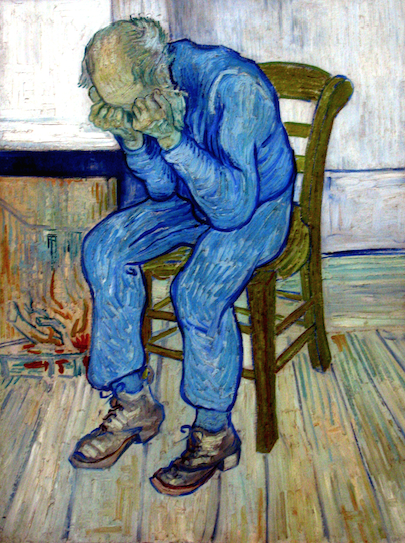Being diagnosed with bipolar disorder was one of the most traumatic events of my life. The illness presented itself in my teens and at the time I was unaware of the possibility that my experiences had a diagnosis and that things could get better. By the time I began experiencing panic attacks, catatonia and hallucinations I was careful to hide when I felt under enough stress to bring these symptoms on. My family knew something was wrong. Bad grades at school, being withdrawn and sullen, periods of activity where my speech was rapid and sometimes absurdly funny and a temper they had never seen from me before were red flags that they were hoping were just adolescence. I refused therapy and was reckless with alcohol and began abusing various drugs, all the while carefully hiding the symptoms and the lifestyle. I even made a first attempt at suicide. Unfortunately, no one was aware that it ever happened. I hid that like everything else.
Eventually, I found someone who broke his way past the barriers I put up. My future husband, Brannon and I met and became serious quickly. He put up with a lot of my problems and convinced me that what I was dealing with had to be confronted. He was unafraid to push me when I tried to deny that there was a problem. I conceded that a visit to the doctor was in order. I turned first to my general practitioner. I was put on an antidepressant and things got a little better. I started researching depression and mental illness in general. I knew it wasn’t as simple as depression. I suspected bipolar disorder but didn’t know that my psychosis could be a part of that diagnosis. I still hid the majority of my symptoms from everyone but Brannon. I was quite frankly afraid that I would be put in a mental hospital. I had so few good examples of how that experience can be a good thing. It brought visions of One Flew Over The Cuckoos Nest and other Hollywood horror stories of mental health care. I let the illness have its way and gave in to the hopelessness I felt. After another attempt at suicide Brannon insisted I go to a psychiatrist. At my first appointment I sat down with my doctor and told him that I had bipolar disorder. He interviewed me thoroughly and agreed. I was put on a mood leveler and began to get better.
I refuse to ever tell anyone with a bipolar disorder diagnosis that going to a psychiatrist will make everything better. I still struggle. Sometimes I struggle a lot. I’ve been inpatient several times and still occasionally have severe symptoms. According to The National Institute of Health as many as 25% to 50% of patients diagnosed with bipolar disorder will make at least one attempt at suicide. I’ve struggled with severe symptoms of Bipolar 1 with psychosis for 31 years. Why am I still here? I have learned three very important things in all these years.
1. Moods are cyclical. Things will get better.
What does this mean? Bipolar disorder has a rhythm. Your moods go from low to high and back again. At times things may seem hopeless. Sometimes it seems like there is no way out of the pit we seem to be in. When I get like this, I remind myself that bipolar disorder is about ups as well as downs. Using coping skills to get past the depths of our emotions will invariably lead us to a better time, a time that is much easier to deal with.
2. Asking for help is a good thing. Even if you have to do things you don’t like to get better.
If you are in a position where you feel you cannot deal with your symptoms alone, asking for help is at times literally a lifesaver. Having someone you trust that you can go to and ask for their intervention is something you should plan for. Find a friend, relative or doctor who will take control when you have lost your ability to make sound decisions. I have sat down with my husband and explained to him that if I come to him and tell him that I don’t know what to do about my symptoms anymore and am mulling over only bad ideas, that I have given him permission to do whatever he thinks is necessary to help me. Yes, even if I end up inpatient. It’s not a fun thing, but neither is doing your taxes. Sometimes it is the very thing you need to get stabilized.
3. Suicide is a permanent solution to a temporary problem.
This is a line I have heard many times from many different sources. I would call it cliché but it rings so true that I have to give it much more value than that. I refer you back to point one: bipolar disorder is cyclical. If you choose suicide, you have chosen something that cannot be undone. You leave in your wake an unfinished life that had the potential to become a very good life. I look back at my first attempt and see what has happened since then. I have a husband who has given me support and two wonderful children. I’ve gone to college, and become an artist. I have a life, and a good one.
I have bipolar disorder, it does not have me.
If you or someone you know needs help, please call the National Suicide Prevention Lifeline at 1-800-273-TALK (8255). You can also reach the Crisis Text Line by texting START to 741-741. For a list of international crisis centers visit this page.


